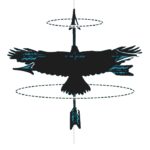 In October 2016, Pidgeonholes published “Sunset, Before” by Saleem Hue Penny. This poem, among others, can be found in Hue Penny’s chapbook, “The Attic, The Basement, The Barn”, available through Tammy.
—
Logo by: Robert James Russell
In October 2016, Pidgeonholes published “Sunset, Before” by Saleem Hue Penny. This poem, among others, can be found in Hue Penny’s chapbook, “The Attic, The Basement, The Barn”, available through Tammy.
—
Logo by: Robert James Russell In October 2016, Pidgeonholes published “Sunset, Before” by Saleem Hue Penny. This poem, among others, can be found in Hue Penny’s chapbook, “The Attic, The Basement, The Barn”, available through Tammy.
—
Logo by: Robert James Russell
In October 2016, Pidgeonholes published “Sunset, Before” by Saleem Hue Penny. This poem, among others, can be found in Hue Penny’s chapbook, “The Attic, The Basement, The Barn”, available through Tammy.
—
Logo by: Robert James Russell